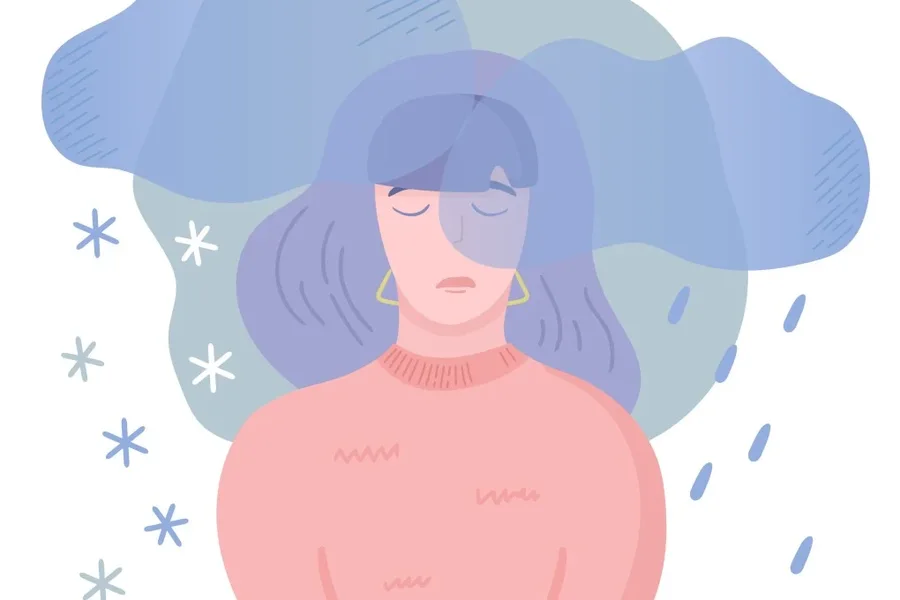
As winter approaches, many people feel tired, lack energy, and unexplained sadness. This condition is known as seasonal affective disorder (SAD), a form of depression that typically appears during the colder months, when days are shorter and sunlight is scarce.
According to psychiatrist Norman Rosenthal, who identified the disorder in the 1980s, about 5% of Americans suffer from SAD each year. Women are about four times more likely to experience it than men. Most people experience significant improvement once spring arrives and exposure to natural light increases.
Common symptoms
SAD is characterized by a range of symptoms that include:
- low mood and persistent feelings of sadness
- fatigue and lack of motivation
- increased daytime sleepiness
- strong cravings for sweet and carbohydrate foods
- loss of interest in activities that once brought pleasure
Unlike classic depression, these signs follow a seasonal rhythm, worsening in winter and disappearing in summer.
Scientists believe that a lack of natural light is a major factor in causing SAD. Sunlight directly affects the production of melatonin and serotonin, two substances that regulate sleep and mood. When the days are darker, our biological rhythms - known as our “internal clock” - are disrupted, leading to depressive states and a lack of energy.
Expert advice to avoid this situation
Use light therapy every day: Rosenthal recommends using a white light box, with an intensity of about 10,000 lux, for 30 minutes every morning. This helps regulate sleep rhythms and improve mood.
Get outside and enjoy natural light: Even on cloudy days, natural light has a positive effect. Morning or lunchtime walks are an easy way to get energy and balance the production of melatonin and serotonin.
Keep your body active: Physical activity, such as walking, yoga, running, or any type of exercise you enjoy, is one of the most powerful ways to combat the symptoms of seasonal depression. Movement promotes oxygen circulation.
Meditate and practice mindfulness: Rosenthal emphasizes that daily meditation helps reduce stress and strengthen emotional resilience during the winter months.
Maintain social connections: Feeling isolated often makes the situation worse. Use meetings, phone calls, or even small activities with friends to stay in touch with others.
Seek professional help if necessary: ??In more severe cases, Rosenthal suggests cognitive behavioral therapy or medication, always under the care of a mental health specialist.





